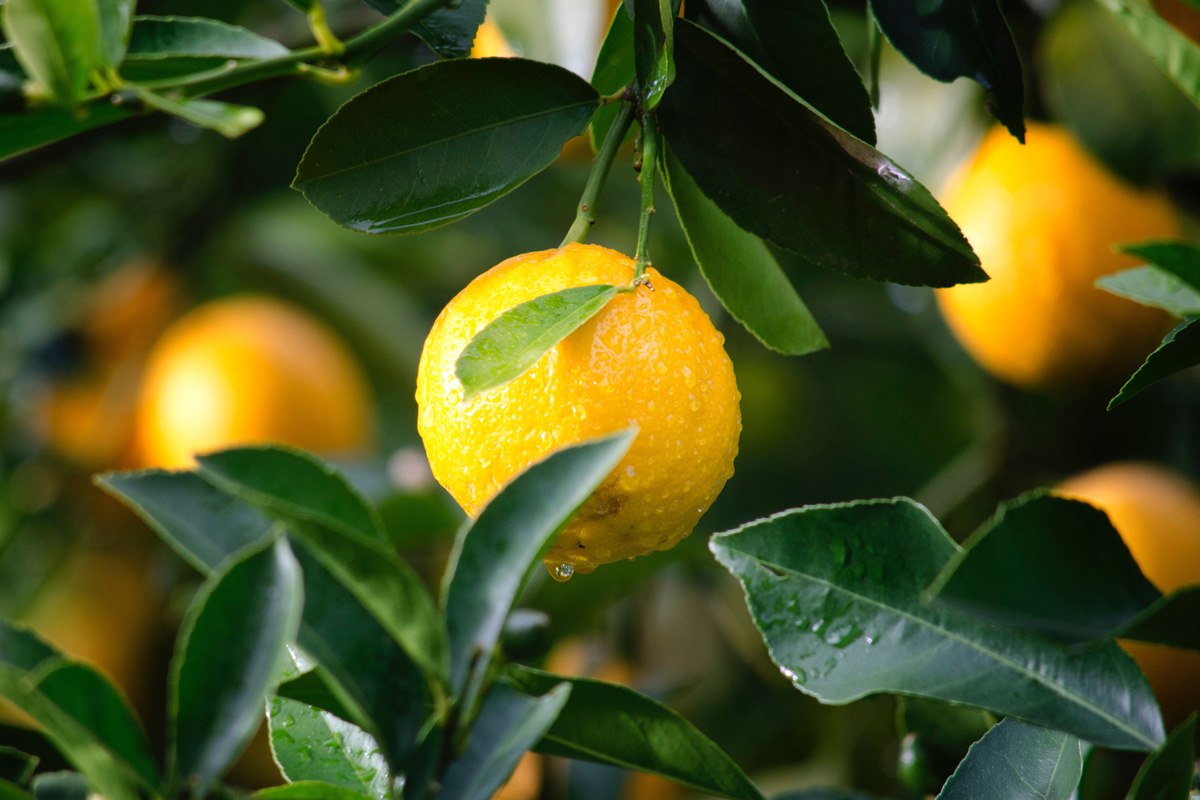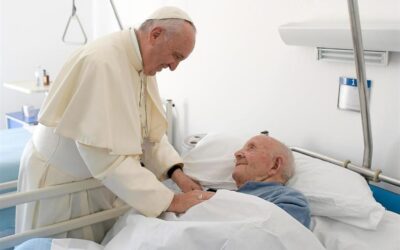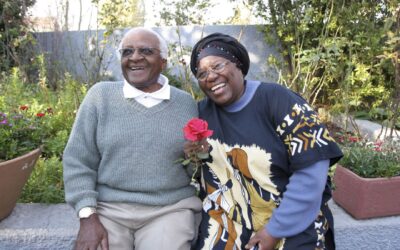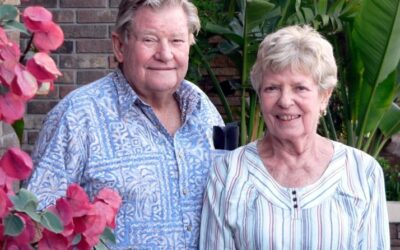My mother loved to read and to drive fast. When she crashed her car into the handicapped elevator at the back of the library, she didn’t stop reading but she did decide to stop driving. Wisdom does come with age–she was 84. Two years before on Christmas Eve, we had watched with some wonder as she sideswiped my husband’s new Prius parked right outside our house while continuing on until she found a parking spot. She either didn’t notice or feel the sideswipe in her rush. She never said a thing nor did we. (I found in Mary’s scrapbook an ARREST NOTICE for running a stop sign in St.Louis 1943, fined $3.00).
My mother’s Catholicism and culture kept her virginal, not just physically. The first night of her honeymoon alone with my father, he was stricken with a prostrating migraine. She was terrified and thought he was dying. She had to call the house doctor of the hotel. My father wouldn’t have told her of his condition because those things were not spoken of then. He was a man of his time, reticent–keeping his thoughts and feelings as well as his ailments to himself. If his migraines had their origin in his underwater demolition diving during the war, he wouldn’t have mentioned it. They were part of the commitment he made to his country. My mother wedded his unspoken history, not just the handsome Jack. That was her vow.
She, too, was brave. Mary had difficult births, caesarean sections and a permanent scar like a gap in nature running down her stomach. Her unquestioning Catholicism made birth control not an option. She had been warned about the dangers of falling pregnant and when she was pregnant again with her fourth child, we were told that her life was at risk. All ended well despite our fears. Was it from this fearsome time that the pillbox in her purse stayed always at her side?
Family history does seem to reveal correspondences through the years. Mary’s mother, my grandmother, had married her first cousin, Jack, in a great love match. Because they were cousins they had to elope to Nebraska to be married as it was illegal in Missouri. My grandmother, Katie, was an only child, a fact which makes her 1904 daring more dramatic – being the sole focus of her parents. And then her father had made his fortune, which would be hers alone while her husband, Jack, had no money, even if he read Byron while he was night-clerking at a hotel. According to my mother, her father Jack was always conscious of their money coming from Katie’s father and because of that refused to speculate with it or use it to attempt to increase it as a businessman would. The one thing he did do was start a small bank during the Depression on June 6, 1932. They had the money that could be used to help others: such a different concept from banking today.
And so history concurred when my mother married my father, also Jack, who also had no fortune. My father, Jack, eventually stepped into the bank and ran it like it was originally intended, to help others. My father also respected the origin of his wealth and when a family issue incited my uncle and mother to sell shares in the bank to a speculator, my father complied. He went along with the speculator’s designs, having turned over his business faith and trust to him.
My father would bring home papers for my mother to sign, something she did without questioning. Some might see this as irresponsible. Mary accepted his judgement as part of their vow. She respected my father’s honor. When the speculator shot himself to smithereens as well as the family fortune, my mother never blamed my father nor herself for that matter. It was an event outside their values, the core of their beliefs. Even though the loss of their fortune greatly affected their lives, it never appeared to affect the core of their love, the sanctity of their vows to each other. A good man is hard to find. I believe that my grandmother knew this, my mother knew this, I know this.
Mary was a smart woman. I have her graduating thesis on the “American Indian” but haven’t yet read it. Although she graduated cum laude, not summa cum laude like her older brother, John Joe, her father used to tell her that she had more sense in her little finger than her brothers had all together. She never lost it. The closest she got to inebriation was devouring the olives from other people’s martinis. Mary drank ‘virgin marys’ and ordered her salads ‘dry,’ but a sweet tooth she had in abundance. She was shy and she could be mean. Her brother, E.G’s dying would not interrupt her hair appointment. I suppose she was only taking her mother-in-law’s advice which she used to like to quote: ”No matter how hard times are, keep getting your hair done.” E.G. died while she was checking her wave in the mirror. Yet, he would have approved.
Even when I was very young, my mother, an extremely intelligent woman, dealt in stereotypes, greatly annoying to me. My older brother was her favorite. It was natural she said because she had been her father’s favorite and her brother had been her mother’s favorite. Mothers favor sons, fathers favor daughters, Mary stated.
To her it was a simple fact. So I was my father’s favorite, but I could never be hers. This was difficult for me to accept. It was only when speaking about this to my brother when we were in our teens that my mind was eased. I can’t remember exactly how he explained it, but he seemed to understand better the way her mind worked. Perhaps it was my brother’s love that filled that gap in hers, in my mother’s love for me. Ironically, I accepted my father’s favoritism without question. I only questioned what I did not have, that top place in my mother’s heart.
Every mother is an orchard. Why did it take me so long to see it? The trees in my mother’s orchard were bargello-barked, crimson and cobalt in precise patterns interwoven with light. Mary’s capable arms branched and buttoned, fingers knotted with sapphire and emerald. Her competent hands, heavy with age like leaves of burnished gold drew the light while drawing it in: an orchard not green but made of light, my mother. Her light I just caught, drenching me, her sorrow, not just the sorrow of losing her first son but unspoken sorrows. A mother’s veil of sorrow comes down like a rain of light. Not the nightingales, but the mockingbirds are weeping in the orchards of our mothers.
All my rebellion against my mother’s materialism, her obsession with jewelry falls away as I discover not the hope diamond, nor my grandmother’s diamonds that I had once hoped to pass on to my children. Mary’s selling them made me so angry but now I see. I recognize her diamond of faith, one of immeasurable carats, one of a purer legacy, a family spiritual tradition: a home in that orchard.
From my early years of complete acceptance of my mother’s pleasing, necessary presence to the later years in which I troubled not enough to sift through the Missoni, furs and jewels, did I dwell too much on the imperfections? Let it be. It seems astonishing to me that now I realize that was my mother’s mantra: “Let it be,” our relationship having been accented so ácute and gravè, particularly later in life when I could not understand why she kept holding my younger brother so tightly while pushing him away. She couldn’t let him go and he refused to leave her side: a convoluted, sick love, destructive, unhappy for both. Let it be, she told me when I was first pregnant, worried and in a foreign land. “Just be yourself and you’ll be fine.”
With her medal of the Sacré Coeur flat against my heart, time is erased and I am four or five, once again kneeling silently beside her, hands held in prayer, imbibing her example of faith. Yes, I unknowingly and unquestionably drank from her spiritual well. Mother Mary comes to me. Her faith has come back to me, late in my life, now when I most need it. I imagine some of her friends might laugh at this spiritual image of my mother because it was not Joseph’s but Mary’s coat, the one of many colors that everyone saw.













0 Comments